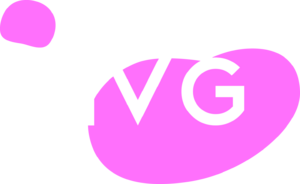ARTIST STATEMENT
The concept of "diary writing" is at the heart of my artistic practice. The main subjects I work with are time, memory, and documentation of everyday life. In my works, I capture everyday life, as if trying to stop the passage of time. Sometimes I do it directly.: I collect collections or individual artifacts, make endless lists, or measure the duration of a process with my work. And sometimes I do it more poetically, using my poems in my works. For example, I create works at the intersection of modern art and concrete poetry.
Also, one of my favorite topics is the theme of error and dysfunction, or "art as a game." For these works, I often borrow materials from everyday life. I'm "reassembling" them in a new order, or using them for other purposes.
The experience of motherhood had a strong influence on my artistic practice – I am a mother with many children. Therefore, I also work with the problems of the work of a female artist. The materials I use in these works are borrowed from traditional women's practices such as sewing, needlework, knitting, embroidery, baking, creating home albums, etc. This allows me to convey the shimmer of my two identities: the artist and the housewife.
The main mediums I work with are graphics, embroidery, textile sculptures, and found objects.
Also, one of my favorite topics is the theme of error and dysfunction, or "art as a game." For these works, I often borrow materials from everyday life. I'm "reassembling" them in a new order, or using them for other purposes.
The experience of motherhood had a strong influence on my artistic practice – I am a mother with many children. Therefore, I also work with the problems of the work of a female artist. The materials I use in these works are borrowed from traditional women's practices such as sewing, needlework, knitting, embroidery, baking, creating home albums, etc. This allows me to convey the shimmer of my two identities: the artist and the housewife.
The main mediums I work with are graphics, embroidery, textile sculptures, and found objects.

CV
Education
2018-2020 Workshop of Arseniy Zhilyaev, Faculty of Contemporary Art, Graduate School "Learning Environment"
2002-2008 Faculty of Art and Graphics of Smolensk State University "SmolGU"Selected exhibitions:
Personal
2025 "Mom's Room", CTI Fabrika, Textura Gallery Moscow (Russia)
2024 "Mom's room", Purga Artspace, Bali (Indonesia)
2024 "To weather the rain", together with Ustina Yakovleva, Sika Gallery, Bali (Indonesia)
Collective
2025 "The Great Disorder", HSE Art Gallery, Moscow (Russia)
2025 Opora, Chambers Gallery, Moscow (Russia)2025 "Synesthesia", "Art Square gallery", St. Petersburg (Russia)
2025 "Numam", "Radionica", Belgrade (Serbia)
2023 "260620 - 171222", Neuer Anhang Gallery, Berlin (Germany)
2021 "Grounding", "Cube.Moscow", Moscow (Russia)2021 "Winzavod. Open", CSI "Vinzavod", Moscow (Russia)
Residences:
2025 "Pop up Gallery" x "First Line", 2025, Zelenogorsk
2025 "Winwood", St. Petersburg (Russia)
2019 "Magma of Secrets", summer residence of the artist Ivan Gorshkov, Divnogorye, Voronezh Region (Russia)
Fairs:
2025 "Port Art Fair", Sevkabel Port, Saint Petersburg, Russia
2025 "Win-win", CSI "Vinzavod", Moscow, Russia
Her works are in private collections in Russia and abroad.
2018-2020 Workshop of Arseniy Zhilyaev, Faculty of Contemporary Art, Graduate School "Learning Environment"
2002-2008 Faculty of Art and Graphics of Smolensk State University "SmolGU"Selected exhibitions:
Personal
2025 "Mom's Room", CTI Fabrika, Textura Gallery Moscow (Russia)
2024 "Mom's room", Purga Artspace, Bali (Indonesia)
2024 "To weather the rain", together with Ustina Yakovleva, Sika Gallery, Bali (Indonesia)
Collective
2025 "The Great Disorder", HSE Art Gallery, Moscow (Russia)
2025 Opora, Chambers Gallery, Moscow (Russia)2025 "Synesthesia", "Art Square gallery", St. Petersburg (Russia)
2025 "Numam", "Radionica", Belgrade (Serbia)
2023 "260620 - 171222", Neuer Anhang Gallery, Berlin (Germany)
2021 "Grounding", "Cube.Moscow", Moscow (Russia)2021 "Winzavod. Open", CSI "Vinzavod", Moscow (Russia)
Residences:
2025 "Pop up Gallery" x "First Line", 2025, Zelenogorsk
2025 "Winwood", St. Petersburg (Russia)
2019 "Magma of Secrets", summer residence of the artist Ivan Gorshkov, Divnogorye, Voronezh Region (Russia)
Fairs:
2025 "Port Art Fair", Sevkabel Port, Saint Petersburg, Russia
2025 "Win-win", CSI "Vinzavod", Moscow, Russia
Her works are in private collections in Russia and abroad.
BIO
Inna Grishechkina. An interdisciplinary artist who works with women's labor issues, everyday documentation, and visual poetry. She was born in Dorogobuzh in 1985. In 2020, she graduated from the Faculty of Contemporary Art "Learning Environments", workshop of Arseniy Zhilyaev. From 2020 to 2022, she was a resident of the artist-run space "Gallery 22". He currently lives and works in St. Petersburg.
PROJECTS
EXHIBITIONS
AFTERWORDS
A few pieces from my notebookes:
"I hate giving names to my artworks: sometimes names come by themselves, but this happens rarely. If I suffer for a long time trying to create them, they turn to be fake or too much ordinary. In general, I have never learnt this."
"How do I make my art? I can say that I am experimenting, playing. Some idea comes to my mind - what will happen if I put the puzzles together in the wrong order? What if I change the colors in embroidery kits? What happens if I cover objects with dough and bake them? - and I do it just to see what it will look like. Sometimes I can see an image of artwork in my mind and try to bring it to life, remaking it many times until it looks similar."
"What are my works about? I think a lot of them are about childhood. It seems to me that in general the nature of my art is very childish: I'm like a kid who collects beautiful rocks and shells, candy wrappers and pictures. That is why I collect my children's drawings and regret so much the lost works of my childhood. Some part of me remains a child being still little."
"If I don't make art, I feel like my day was wasted. Without this activity I lose my identity. So, I wonder if art is something that makes me myself."
"For a long time I could not embark on drawing patterns or start making embroidery because I knew how long and monotonous this work would be. According to logic, I could have started doing embroidery from the very beginning but I couldn't make myself do it for several years. I never embroidered before this, and if my artistic intention had not required it, I would never have started it. So I kept asking myself why I had to take on this work that no one but me needed. It didn't give me any relief when I saw a finished piece of art because I felt like it could be done in a better way."
"My notes are what I think about during my work. Why do I make them? Why do I find it important? Because my work and my thoughts are what I can share. If people look at my works and find them interesting, then why my thoughts could not be the same? What else can I tell? What do I know better? After all, it would be strange to repeat other people's thoughts, to work or illustrate other people's ideas. There is an opinion that an ordinary person could not be interesting ("no one cares what an artist thinks").
"Why, in this case, to make works at all? Why can they be interesting, but the artist's thoughts can't? What is the fundamental difference between artworks and thoughts if both are the product of the one's mind? If I don't express my thoughts, who will express them then? Is it worth expressing them at all? Then is it worth making art? I am an artist and people look at my works, including artists like me. Perhaps my thoughts will seem familiar to them. Most likely, similar thoughts also come to them. Well, sometimes I make poetry. Normally it takes me quite a long time to I create a piece of work and a lot of thoughts can come to my mind during this time and not all of them become texts for works. That is always the author's choice."
"I hate giving names to my artworks: sometimes names come by themselves, but this happens rarely. If I suffer for a long time trying to create them, they turn to be fake or too much ordinary. In general, I have never learnt this."
"How do I make my art? I can say that I am experimenting, playing. Some idea comes to my mind - what will happen if I put the puzzles together in the wrong order? What if I change the colors in embroidery kits? What happens if I cover objects with dough and bake them? - and I do it just to see what it will look like. Sometimes I can see an image of artwork in my mind and try to bring it to life, remaking it many times until it looks similar."
"What are my works about? I think a lot of them are about childhood. It seems to me that in general the nature of my art is very childish: I'm like a kid who collects beautiful rocks and shells, candy wrappers and pictures. That is why I collect my children's drawings and regret so much the lost works of my childhood. Some part of me remains a child being still little."
"If I don't make art, I feel like my day was wasted. Without this activity I lose my identity. So, I wonder if art is something that makes me myself."
"For a long time I could not embark on drawing patterns or start making embroidery because I knew how long and monotonous this work would be. According to logic, I could have started doing embroidery from the very beginning but I couldn't make myself do it for several years. I never embroidered before this, and if my artistic intention had not required it, I would never have started it. So I kept asking myself why I had to take on this work that no one but me needed. It didn't give me any relief when I saw a finished piece of art because I felt like it could be done in a better way."
"My notes are what I think about during my work. Why do I make them? Why do I find it important? Because my work and my thoughts are what I can share. If people look at my works and find them interesting, then why my thoughts could not be the same? What else can I tell? What do I know better? After all, it would be strange to repeat other people's thoughts, to work or illustrate other people's ideas. There is an opinion that an ordinary person could not be interesting ("no one cares what an artist thinks").
"Why, in this case, to make works at all? Why can they be interesting, but the artist's thoughts can't? What is the fundamental difference between artworks and thoughts if both are the product of the one's mind? If I don't express my thoughts, who will express them then? Is it worth expressing them at all? Then is it worth making art? I am an artist and people look at my works, including artists like me. Perhaps my thoughts will seem familiar to them. Most likely, similar thoughts also come to them. Well, sometimes I make poetry. Normally it takes me quite a long time to I create a piece of work and a lot of thoughts can come to my mind during this time and not all of them become texts for works. That is always the author's choice."
CONTACT
